- Home
- Blake Crouch
BIRDS OF PREY - A Psycho Thriller
BIRDS OF PREY - A Psycho Thriller Read online
BLAKE CROUCH, JACK KILBORN & JA KONRATH
Annie Wilkes from Misery…
John Doe from Se7en…
Hannibal Lecter…
For everyone who thinks the bad guys are so much more fun to read than the good guys, we’ve written a book just for you.
In the annuls of modern thriller fiction, the villains always steal the show. We love to read and watch great villains. In many cases, they’re the best, most entertaining parts of our books, so it only made sense to write a book featuring every major villain we’ve ever written.
They’re all here…Lucy and Donaldson from Serial, Orson and Luther from Desert Places, Locked Doors, and Break You, Mr. K from Shaken, Alex and Charles Kork from Whiskey Sour and Rusty Nail, Isaiah from Abandon, Javier from Snowbound, and many, many more from the Crouch and Konrath/Kilborn books including Trapped, Run, Bloody Mary, Afraid, Endurance, and Shot of Tequila.
If you liked Serial Uncut and Killers, Birds of Prey is going to blow your mind, scar your soul, and scare you to death.
If you haven’t read anything by Crouch, Kilborn, or Konrath, Birds of Prey is the perfect introduction to the dark side of their universe.
And if you enjoy a good bad guy (or bad girl), you’re going to love this.
Because there are TWENTY-ONE of them featured in this book.
Beyond a thrilling piece of horrifying suspense, Birds of Prey also takes the collaborative literary experiment begun in Serial and Killers to the next level, with most of the novel having been written in a Google Doc, where the authors could simultaneously write in real time. All bets were off, and may the best psycho win.
NOTE: Birds of Prey is a 40,000-word novella, which is FULLY CONTAINED in Killers Uncut and Serial Killers Uncut. If you’ve already bought Killers, this is all the new material contained in Killers Uncut except for Killers. If you haven’t read Killers yet, buy Killers Uncut.
Introduction
Part One — A Watch of Nightingales
Part Two — A Day at the Beach
Part Three — The One That Stayed
Part Four — A Night at the Dinner Table
Part Five — Cuckoo
Part Six — A Wake of Buzzards
Part Seven — A Brood of Hens
Part Eight — A Glaring of Owls
Part Nine — A Murder of Crows
Part Ten — The One That Got Away
Part Eleven — An Unkindness of Ravens
Part Twelve — The One That Didn't
Part Thirteen — A Schizophrenia of Hawks
Bonus Features
Afterword
Excerpt: SERIAL UNCUT
About Blake Crouch
About JA Konrath and Jack Kilborn
Also by JA Konrath
Also by Blake Crouch
Coming Soon
Copyright
The original version of SERIAL, still available as a free ebook, was a 7500-word horror short story written as an experiment. In less than a year, that experiment was downloaded over 200,000 times, and has received over a hundred scathingly negative reviews, with many people claiming it was the most depraved, awful thing they’ve ever read.
SERIAL UNCUT was over 36,000 words, much of it brand new. Along with the insertion of additional material too extreme for the original version, it also had a vastly expanded beginning and ending, including an extended section that originally appeared in the novellas BAD GIRL and TRUCK STOP.
But even with this expanded version, there were still some loose ends to tie up, and some story left to tell.
Which brought us to KILLERS, the sequel to Donaldson’s and Lucy’s escapades in the desert southwest.
A now, finally, the lynchpin that ties it all together…BIRDS OF PREY.
Neatly bringing together characters from Crouch’s, Kilborn’s, and Konrath’s works, BIRDS OF PREY is a companion piece to SERIAL UNCUT, DESERT PLACES, LOCKED DOORS, BREAK YOU, ENDURANCE, FUZZY NAVEL, CHERRY BOMB, SHAKEN, STIRRED, SNOWBOUND, ABANDON, RUN, and DRACULAS.
If you can handle horrific thrills, proceed at your own risk.
But if you suffer from anxiety attacks, nervous disorders, insomnia, nightmares or night terrors, heart palpitations, stomach problems, or are of an overly sensitive nature, you should read something else instead.
The authors are in no way responsible for any lost sleep, missed work, failed relationships, or difficulty in coping with life after you have read BIRDS OF PREY. They will not pay for any therapy you may require as a result of reading BIRDS OF PREY. They will not cradle you in their arms, rock you back and forth, and speak in soothing tones while you unsuccessfully try to forget BIRDS OF PREY.
You have been warned…
Love,
Blake Crouch, Jack Kilborn, and JA Konrath
A Watch of Nightingales
Winston-Salem, North Carolina, 1969
“Get in here, boys!” Jeanette shouted. “It’s happening, and you’re missing it! Andrew! Orson! Come on!”
The eight-year-old twins raced each other down the hall and into the living room, where they skidded to a stop on the green shag carpet.
“You have to see this,” their mother said, pointing at the television screen.
“What’s wrong with Dad?” Orson asked.
Andy looked over at their father who sat on the edge of an ottoman, leaning toward the television with his forearms on his knees and tears running down his face.
“Nothing, son,” he said, dabbing at his eyes with a handkerchief. “Just never thought I’d be alive to see something like this.”
“Can we go outside?” Andy said.
“It’s too late,” Jeannette said. “Ya’ll need to get ready for bed.”
“Aw, come on, Mom. Just for ten minutes,” Orson begged.
“Five minutes,” their mother said. “And don’t make me come out there looking for you.”
The boys rushed out the front door into the night, the screen door banging shut after them.
It was July and warm, lightning bugs floating everywhere like airborne embers, sparking and fading, sparking and fading.
“Look at me!” Andy screamed, running out into the long, cool grass in the front yard. “I’m floating!”
When the boy stopped, he glanced back toward the driveway, saw his brother lying on his back, staring up at the sky.
Andy moved back toward him in exaggerated hops, pretending to bounce along through reduced gravity.
He lay down on the warm concrete beside his brother, their shoulders barely touching, and stared up into the sky.
The gibbous moon shone with a subdued brilliance through the humid southern night.
“I can see them up there,” Andy said.
Orson glanced at him, brow furrowed. “Really?”
Andy smiled. “Of course not, I’m just kidding.”
“I knew that.”
They were quiet for a bit, and then Orson said, “I think there’s something wrong with me.”
“I know, my stomach always hurts after Mom’s meatloaf, too.”
“No, it’s not that.”
“What?”
“You ever feel different?” Orson said.
“Different? Like how?”
“Like from other people, stupid.”
“I don’t know. I don’t guess so.”
“Yeah, that’s because you’re normal.”
“So are you.”
“No, I’m not.”
“Yes, you are, you’re my brother.”
“That doesn’t make me normal, Andy.”
“I know you and there’s nothing wrong—”
“But you onl
y know my outside. You don’t know what’s inside. The thoughts I have.”
“What thoughts?”
“Just thoughts.”
“Normal ones?”
“I don’t think so.”
“Like what?” Andy asked.
“I don’t want to tell. They’re mine.”
“Tell me.”
Orson looked over at Andy. Now there were tears in his eyes. Glassy in the moonlight.
“You’ll tell Mom and Dad.”
“No, I won’t.”
“You promise?”
“I promise.”
Orson looked back into the sky.
“Everyone’s real excited about what’s happening.”
“I know.”
“But you know what I’m thinking?”
“How could I?”
Orson hesitated. Then: “No, I don’t want to say.”
“Orson.” Andy reached over and took hold of his brother’s hand. “You can trust me. Always.”
Orson blinked twice, and then said, “I wish Neil Armstrong would die up there.”
“Why?”
Orson shrugged. “I don’t know. But I wish his friend would leave him on the moon or the Eagle would blow up or a space monster that no one had ever heard of before would crawl out of a hole and eat him. Everyone would be sad, and I’d be….so happy.”
Andy stared at his brother, an airy fluttering in his stomach now, and it wasn’t his mother’s meatloaf.
“You can let go of my hand if you want,” Orson said, and that look on his face would never leave Andy—fear and defiance and rage and a deep, deep sadness.
The screen door banged open.
Their mother’s voice echoing through the woods across the street, calling for them to come inside and get ready for bed.
Andy squeezed his brother’s hand tighter.
A Day at the Beach
North Carolina Outer Banks, 1977
They were a happy, black-eyed family, and the day was perfect.
Late August.
The heat broken by the breeze coming off the ocean.
A few stray clouds way out over the Atlantic, but otherwise, the sky pitch-blue and already beginning to deepen toward evening.
Rufus Kite and his five-year-old son had started after lunch, and now, six hours into the project, it loomed over the beach like the ruins of a Scottish castle. They’d constructed a moat all the way around—two feet wide and a foot down to the water table. Luther had even put a crab inside as a stand-in for a real monster. The tide would be upon them anytime now, and already the noise of the surf was getting louder as it inched closer. Luther sat in the middle of the castle, surrounded by two-foot walls, digging trenches and passageways while his father dripped wet sand along the top wall. It looked like disintegrating masonry.
Ten yards behind the castle, Luther’s mother and sister reclined in beach chairs under the shade of an umbrella, Maxine tearing through the last fifty pages of a Ludlum novel, Katie curled up sleeping in her chair, the eight-year-old a deep bronze—the only member of the Kite clan who could catch a tan.
They’d driven onto the beach eight hours ago, the kids riding in the back of the old Dodge pick-up truck as Rufus drove all the way out to the southern tip of the island—a spit of sand jutting out into the sea.
At this time of day, they had it all to themselves.
A man had been fishing a few hundred yards up the beach for the last several hours, but he was gone now.
A fishing trawler loomed like a ghost on the horizon several miles out, nearly invisible through the haze.
“If we build it big enough,” Luther said as he packed the damp sand, fortifying the wall, “maybe the tide won’t knock our castle down?”
Rufus grinned at his son.
“If we built this thing taller than me, the ocean would still bring it down. There’s no stopping it.”
Luther scowled. “But we worked so hard. I like it. I don’t want it to fall.”
“Just enjoy it while you have it, son. By the way, that philosophy works for more than sand castles.”
Luther came to his feet just as a breaker crashed twenty feet away.
Sea water raced up the sand, stopping just shy of the moat.
He turned around, glanced back toward the dunes.
The sun was just sliding down behind the live oaks on Ocracoke Island.
Only a few hours of daylight left.
It had been such a perfect day, and Luther felt a glimmer of sadness at the thought of it coming to an end.
He could see the ocean beginning to swell again.
Another wave coming.
He looked up at his father, saw Rufus smiling down at him, sweat beading out across the man’s forehead under the jet-black bangs that stopped just above his eyes. The boy would always see his father like this, even in his old age.
Young. Fit. Strong and happy.
The breaker crashed ashore.
The sea foaming and fizzing like a bottle of spilt soda.
Rufus put his hand on Luther’s shoulder.
“Here comes the first attack, my boy. Man your battle station!”
Luther stepped up to the front wall and watched the water race toward them with a lump in his throat.
When the sun was gone, they got a bonfire going and roasted wieners over a bed of coals that Maxine had spread out in the sand.
Luther and Katie sat together eating hot dogs as the tide went out, the sound of the breakers now growing steadily softer.
When he was finished with supper, Luther leaned against his sister and stared into the flames, his belly full, watching the fire consume the wood of some ancient shipwreck. He could feel the accumulation of sunlight in his shoulders—a warm, subtle glow. His eyes were heavy.
“You tired?” Katie asked.
“No.”
“Yeah, you are.”
“No, I’m not.”
“It’s okay to be tired, Luther.”
“I know.”
She kissed the top of his head. “Sorry about your castle. You still sad it’s gone?”
Luther said nothing.
“It was really cool, buddy,” Katie said. She craned her neck and looked him in the eyes, must have seen the tears welling, shining in the light of the fire. “Luther,” she said, “you’ll get to make another one. I bet it’ll even be bigger next time.”
Luther glanced up through the flames at his father and mother, Maxine wrapped in a shawl and cuddled up between Rufus’s legs nursing a cold beer.
The heat of the fire felt good lapping at his face. He could’ve fallen asleep to it.
Gazing up into the sky, he watched the sparks rising toward the stars.
Smelled the residue of suntan lotion on Katie that the sand hadn’t worn away.
Coconut.
He filled with a sudden and profound warmth for his sister.
Only three years older than he was and yet she understood him better than anyone else. Better even than their mother.
He’d just started to reach for her hand when he noticed the light.
For a moment, he mistook it for a lightning bug—it had that floating, bouncy quality—but then he realized it was the bulb of a flashlight moving toward their fire.
Still thirty or forty yards away, and he couldn’t have known how often he would dream of that image. How thoroughly the fear of it would come to define him. So innocuous—just a speck of brilliance coming toward him in the dark.
His mother must have noticed the diversion of his focus, because she said, “What’s wrong, boy?”
Luther jutted his chin toward the light. “Somebody’s coming.”
“Probably just someone out for a late-night stroll,” she said.
“Can we spend the night here?” Katie asked.
“I don’t think so,” Rufus said. “I need a shower.”
Maxine chuckled. “And a soft bed, sweet-sweet.”

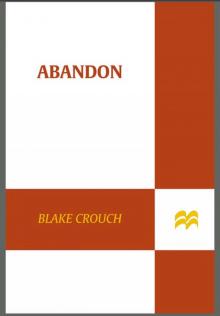 Abandon
Abandon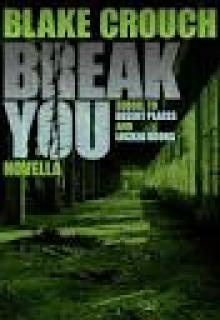 Break You
Break You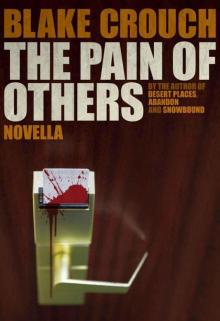 The Pain of Others
The Pain of Others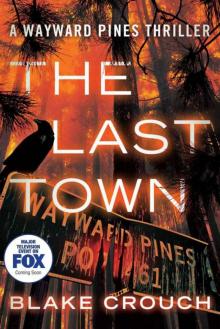 The Last Town
The Last Town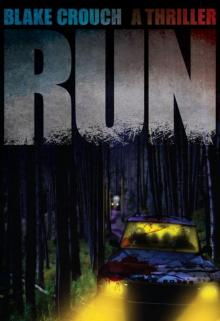 Run
Run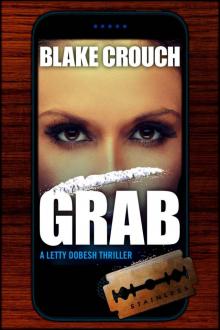 Grab
Grab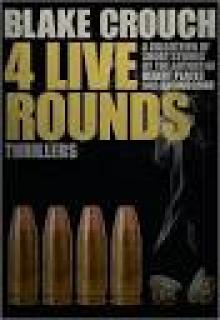 Four Live Rounds
Four Live Rounds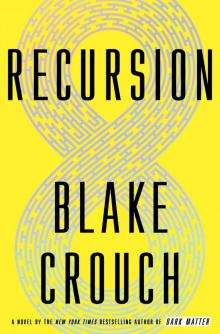 Recursion
Recursion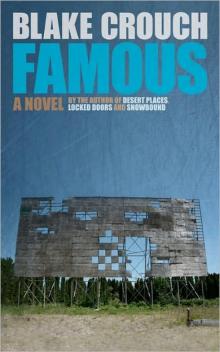 LUMINOUS BLUE: A Novel of Warped Celebrity
LUMINOUS BLUE: A Novel of Warped Celebrity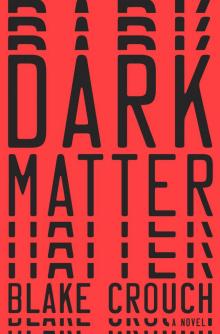 Dark Matter
Dark Matter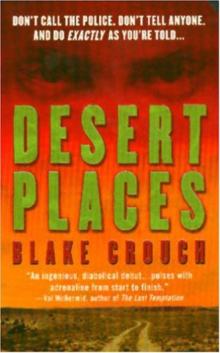 Desert Places
Desert Places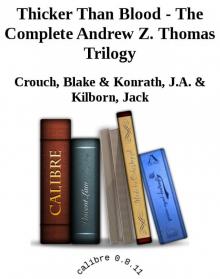 Thicker Than Blood - the Complete Andrew Z. Thomas Series
Thicker Than Blood - the Complete Andrew Z. Thomas Series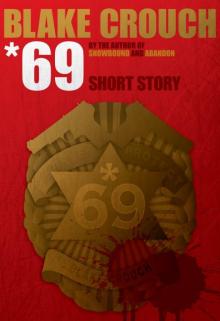 *69
*69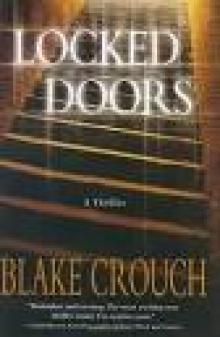 Locked Doors
Locked Doors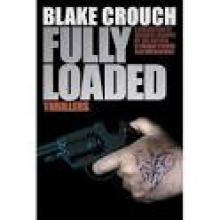 Fully Loaded Thrillers
Fully Loaded Thrillers![Summer Frost [Forward Collection] Read online](http://i1.bookreadfree.com/02/summer_frost_forward_collection_preview.jpg) Summer Frost [Forward Collection]
Summer Frost [Forward Collection]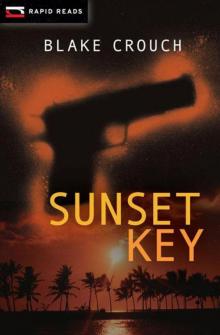 Sunset Key
Sunset Key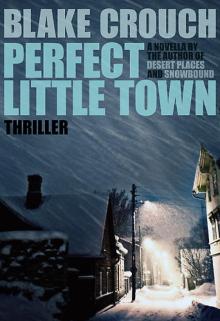 Perfect Little Town
Perfect Little Town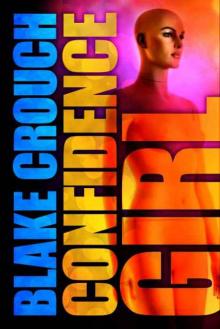 Confidence Girl
Confidence Girl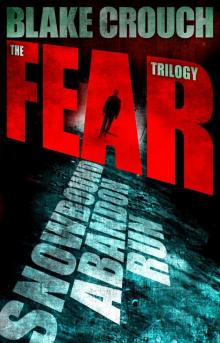 The Fear Trilogy
The Fear Trilogy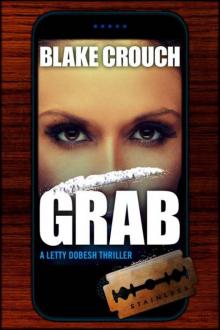 Grab ldm-3
Grab ldm-3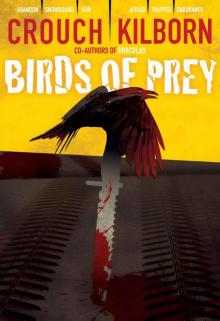 BIRDS OF PREY - A Psycho Thriller
BIRDS OF PREY - A Psycho Thriller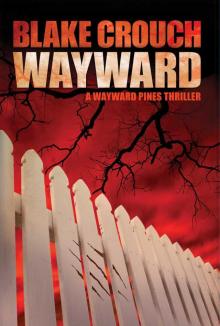 Wayward (The Wayward Pines Series, Book Two)
Wayward (The Wayward Pines Series, Book Two)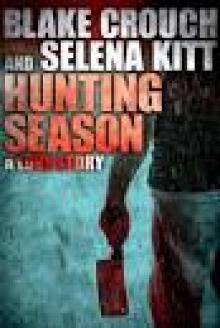 Hunting Season: A Love Story
Hunting Season: A Love Story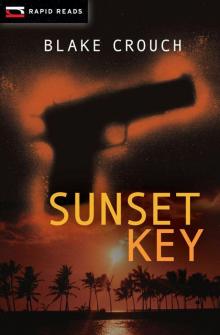 Sunset Key (Rapid Reads)
Sunset Key (Rapid Reads)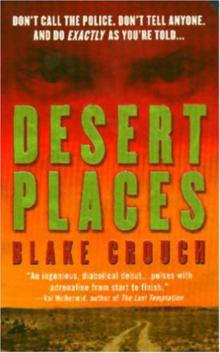 Desert Places: a Novel of Terror
Desert Places: a Novel of Terror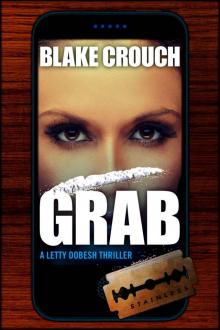 Grab (Letty Dobesh #3)
Grab (Letty Dobesh #3)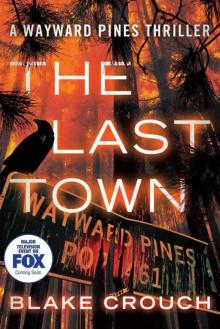 The Last Town (The Wayward Pines Trilogy 3)
The Last Town (The Wayward Pines Trilogy 3)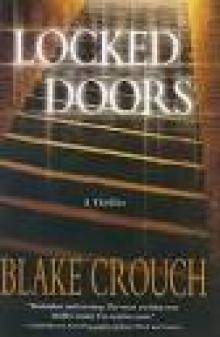 LOCKED DOORS: A Novel of Terror (Andrew Z. Thomas Thriller)
LOCKED DOORS: A Novel of Terror (Andrew Z. Thomas Thriller) BREAK YOU: A Novella of Terror (Prequel to Stirred) (Andrew Z. Thomas/Luther Kite)
BREAK YOU: A Novella of Terror (Prequel to Stirred) (Andrew Z. Thomas/Luther Kite)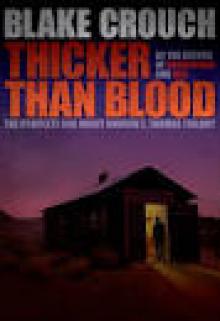 Thicker Than Blood - The Complete Andrew Z. Thomas Trilogy
Thicker Than Blood - The Complete Andrew Z. Thomas Trilogy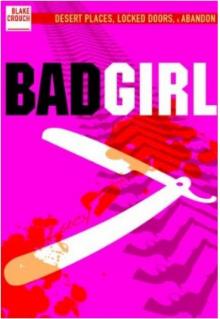 Bad Girl
Bad Girl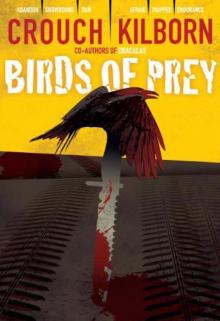 Birds of Prey
Birds of Prey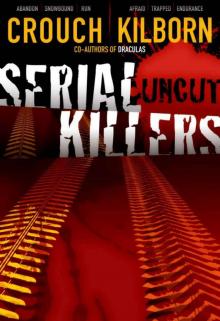 SERIAL KILLERS UNCUT - The Complete Psycho Thriller (The Complete Epic)
SERIAL KILLERS UNCUT - The Complete Psycho Thriller (The Complete Epic)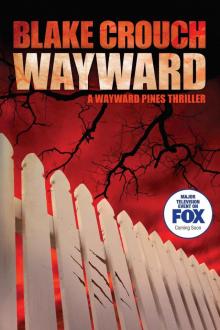 Wayward (The Wayward Pines Trilogy, Book 2)
Wayward (The Wayward Pines Trilogy, Book 2)